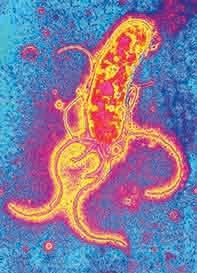Peer Reviewed
Feature Article Gastroenterology
Helicobacter pylori infection: when to search for it and how to diagnose it
Abstract
Helicobacter pylori infection accounts for up to 90% of duodenal ulcers and about 70% of gastric ulcers. Most infected individuals do not develop clinically significant disease, so it is important to know when to diagnose and treat H. pylori infection.
Key Points
- Helicobacter pylori is usually acquired in early childhood through close contact with an infected person, and the infection persists for life unless treated.
- H. pylori infection accounts for up to 90% of duodenal ulcers and about 70% of gastric ulcers.
- Most individuals infected with H. pylori do not develop clinically significant disease during their lifetime.
- Proton pump inhibitor (PPI)-based triple therapy for seven days is highly effective and successfully eradicates H. pylori infection in more than 90% of cases.
- In most cases of ulcer disease, long-term PPI therapy is not warranted once H. pylori infection has been eradicated.
Purchase the PDF version of this article
Already a subscriber? Login here.

